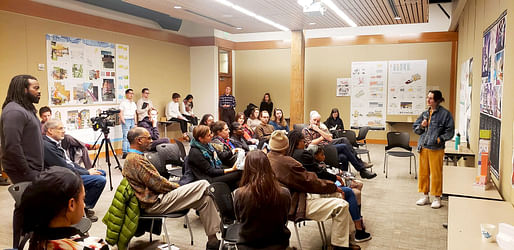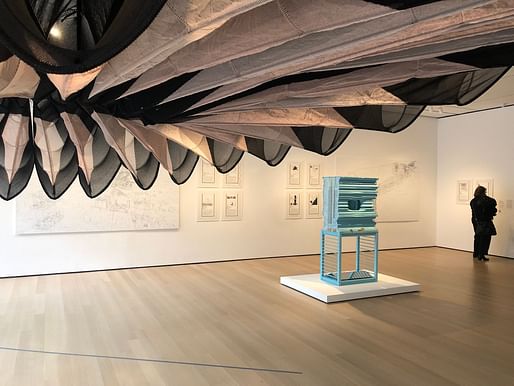

Following last week’s look at an opening for a Curator of the Loeb Fellowship at Harvard University, we are using this week’s edition of our Job Highlights series to explore an open role on Archinect Jobs for Visiting Faculty Fellowships in Design for Spatial Justice at the University of Oregon, an Archinect Partner School.
The roles, based in Eugene and Portland, call for individuals to teach six courses per year on the topics of environmental, social, and spatial justice in design. “We particularly encourage applications from candidates who are interested in teaching questions in spatial justice at the intersections of gender, race, ethnicity, indigenousness, sexuality, and economic inequality and who are interested in teaching innovation design/research methods with a focus on architectural design studio,” the university says about the fellowship opportunities.
Why the role interests us
The fellowships at the University of Oregon offer us the opportunity to highlight several recent pieces across Archinect’s editorial, which are grounded in environmental, social, and spatial justice. In January, we reported on the Docomomo US stand against ‘anti-diversity’ policies at a Florida symposium, while in 2023, we noted how a lawsuit involving the Hunters Point Library in New York City “highlights the ADA’s failures to prevent inequality by design.”
Throughout the past year, the Archinect In-Depth: Artificial Intelligence series has also included several voices who both warn of the potential for AI to exacerbate social and spatial injustices but are also using emerging technologies to combat the issue. Felecia Davis, co-founder of the Black Reconstruction Collective and an associate professor at Penn State, for example, used our interview to “encourage students to think about social constructions because they exist in every context our work touches.”
Elsewhere, Ethiopian designer and researcher Miriam Hillawi Abraham warned readers of the potential for digital technologies and artificial intelligence to generate a single, incomplete visual language for the future which would further propagate a Western-centric monoculture, while Iranian artist Morehshin Allahyari warned that “every bias in the world, whether politics, injustice, or inequality, is always reflected in technological tools and that “artificial intelligence is no exception.”

Further reading for interested candidates
Job Highlights is one of a number of ongoing weekly series showcasing the opportunities available on our industry-leading job board. Our Meet Your Next Employer series profiles and interviews interesting studios with open positions currently available on Archinect Jobs, while our weekly roundups curate job opportunities by location, career level, and job description.
No Comments
Block this user
Are you sure you want to block this user and hide all related comments throughout the site?
Archinect
This is your first comment on Archinect. Your comment will be visible once approved.